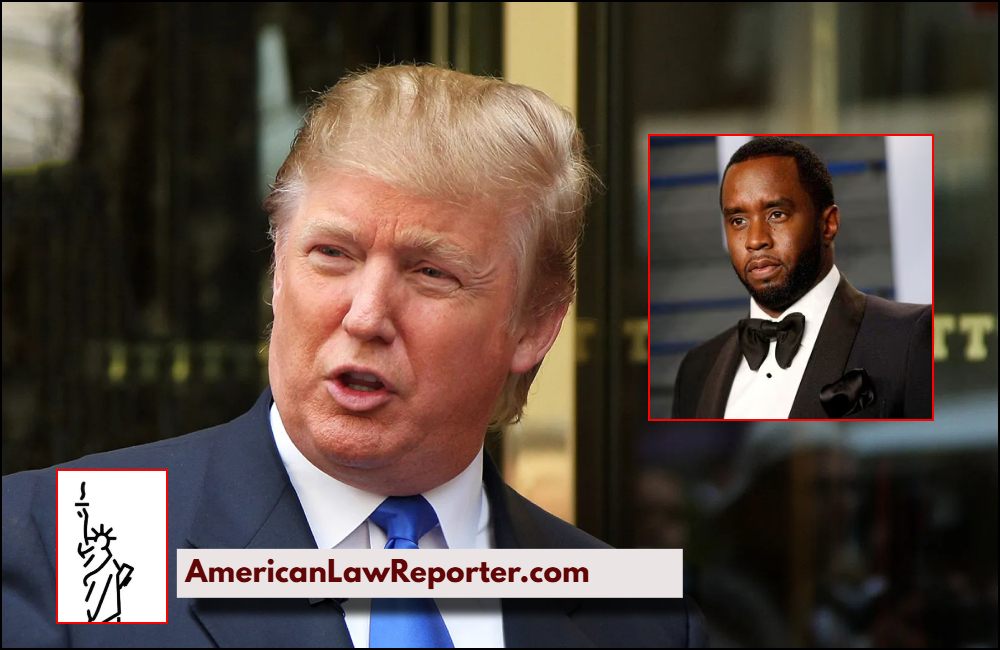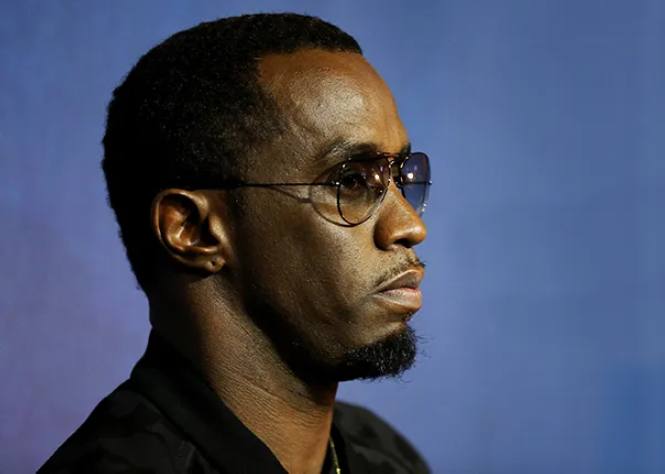President Donald Trump said Monday that music mogul Sean “Diddy” Combs has reached out seeking a presidential pardon following his conviction on two prostitution-related charges.
The revelation, according to observers, adds another layer of political and legal intrigue to Combs’ criminal case.
During a press briefing at his Mar-a-Lago residence, Trump remarked, “A lot of people have asked me for pardons. I call him Puff Daddy — he has asked me for a pardon.”
The comment, delivered with Trump’s characteristic offhand tone, immediately sparked widespread media attention, reviving debate over presidential pardon powers and the limits of executive clemency in high-profile criminal cases.
Background of the Case

Combs, 55, was sentenced last Friday to more than four years in federal prison following a conviction on two counts of promoting prostitution. He was acquitted on all major charges related to sex trafficking and racketeering (RICO), but the lesser charges still carried significant penalties.
He will receive credit for the 12 months he has already served at the Metropolitan Detention Center in Brooklyn since his September 2024 arrest. The court also imposed a $500,000 fine. Prosecutors had sought a longer term, citing what they described as “a pattern of coercive and exploitative conduct spanning years,” though those claims were not reflected in the final conviction.
Defense Response and Appeal Plans
Combs’ legal team, led by attorney Teny Geragos, has strongly criticized the ruling and indicated that an appeal is forthcoming.
“The jury made it very clear in their verdict that they acquitted him of the sex trafficking and RICO counts,” Geragos told ABC News on Friday. “Not guilty means not guilty.”
Geragos and co-counsel have argued that the judge’s decision to impose a sentence four times longer than what the defense requested was unjust and potentially based on unsubstantiated allegations excluded from the jury’s verdict. According to a defense memorandum, Combs’ team intends to file a formal notice of appeal with the Second Circuit Court of Appeals within the statutory deadline.
Request for Facility Placement

In a letter to the court filed Monday, Geragos requested that Combs be allowed to serve his sentence at FCI Fort Dix, a low-security federal prison in New Jersey known for its Residential Drug Abuse Program (RDAP). The facility houses approximately 4,000 inmates and offers a variety of vocational and rehabilitative services.
“In order to address drug abuse issues and to maximize family visitation and rehabilitative efforts, we request that the Court strongly recommend to the Bureau of Prisons that Mr. Combs be placed at FCI Fort Dix for RDAP purposes and any other available educational and occupational programs,” Geragos wrote.
The request underscores the defense’s strategy of framing Combs’ rehabilitation as central to his sentence, a move that could influence potential clemency discussions.
Presidential Pardon Controversy
Trump’s revelation about Combs’ purported pardon request raises legal and ethical questions about the use of presidential pardon powers in politically sensitive cases. Under Article II, Section 2 of the U.S. Constitution, the president may grant pardons for federal offenses, but typically only after sentencing and upon formal application through the Office of the Pardon Attorney at the Department of Justice.
A spokesperson for Combs declined to comment on Trump’s statement Monday, and the White House has not confirmed whether any formal application has been submitted.
Trump’s remarks came in response to a broader question about pardons, specifically concerning Ghislaine Maxwell, the former associate of Jeffrey Epstein. The Supreme Court earlier in the day declined to hear Maxwell’s appeal challenging her conviction for sex trafficking, leaving her 20-year prison sentence in place.
Asked whether he would consider a pardon for Maxwell, Trump said, “I’ll take a look at it. I will speak to the Justice Department.”
Legal and Political Ramifications
If Combs were to receive a presidential pardon, it would effectively erase his federal conviction, though it would not preclude ongoing civil litigation related to his conduct. Legal experts note that such a move — particularly if issued during an election season — could draw comparisons to Trump’s prior controversial pardons of high-profile figures such as Roger Stone and Paul Manafort.
For now, Combs remains under federal custody pending transfer to a Bureau of Prisons facility. His case, and the potential for presidential intervention, is likely to remain under close public and legal scrutiny as both his appeal and the 2026 political landscape unfold.
